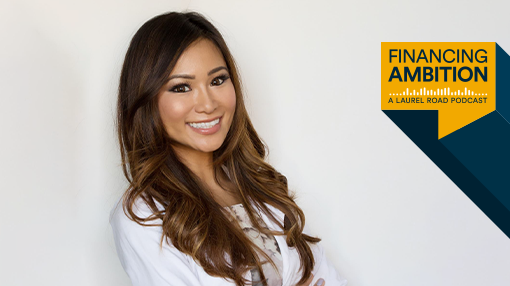Finally becoming a full-fledged attending physician is exciting and can be nerve-wracking as well. Instead of learning, you’re now expected to teach and do! And you have the pleasure — and pressure — of figuring out what to do with that new attending paycheck.
There are many different paths your career can take from here, and none of them are right or wrong. But no matter what direction you go in, here are 7 pieces of advice that will help make the transition as smooth as possible.
1) Live like a resident a little bit longer
If you’ve read any financial advice for doctors on the internet, you might have heard this phrase before. It’s almost gospel for financially savvy doctors that you want to spend your first few years as a doctor keeping close to your old residency budget. But why is this advice so important?
The reason is that many doctors fall victim to lifestyle inflation, or lifestyle creep. As their salary grows, so does their spending, and before they know what’s happening all of their new earnings have been spent and they’re no closer to their larger goals of retirement, paying off their student loans, or achieving their personal financial vision.
Most attendings are dealing with a large amount of student loan debt. Taking out a loan for a dream home or car on top of that debt means even more of your paycheck disappears every month until these loans are paid off — and if you’re not tackling your student loans aggressively, that could be more than a decade.
Instead, by spending a few years hunkering down and demolishing those loans and putting early savings into retirement accounts, you’ll be in a much better position to approach the lifestyle you want in the future.
2) Build your emergency fund
Emergency funds — they’re almost as fun as budgeting.
You might feel like you don’t need an emergency fund as a physician, with fairly high job security and robust insurance for worst-case scenarios. However, situations can still arise where you might need more liquidity than a single paycheck can afford.
Many healthcare workers found themselves out of work for months due to COVID-19 restrictions, and it’s also possible to deal with unpaid parental leave or pauses between jobs when moving. It’s also wise to have enough in your emergency fund to cover your full out-of-pocket deductible for your health insurance, in case of a medical emergency.
You may be reluctant to put money into an emergency fund while you still have student loans, but remember that any credit card or personal loan debt you take on due to an emergency will have a much higher interest rate than your loans, assuming you are able to get access to credit in the event of a job loss. Although student loans are extremely challenging to deal with, they likely have the lowest interest rate of any debt you’ll take on.
3) Develop self-care strategies
With the intense pressures and call schedules of residency, it’s easy to fall into bad habits around sleep, avoiding exercise, and relying on greasy take-out. Now is the perfect time to reset those habits and start rebuilding healthy practices around self-care.
As you probably learned in med school (and might even have advised a patient or two), taking care of these basic needs is essential to managing your overall mental and physical health, although it’s all too easy to let them fall to the side.
Being a doctor is hard, on both the body and the soul. So invest in yourself — whether that means buying comfortable shoes, starting a meditation practice, learning to love quinoa, or all of the above.
4) Don’t be afraid to change tracks
At this point in your career, it may seem like the professional road ahead is straightforward. But you may also feel locked in based on where you matched for residency.
The truth is, doctors’ careers come in many different shapes, and over half of all new attendings leave their first job within five years. Doctors move jobs, decide to start or join a private practice, move to telemedicine, take up teaching or consulting work, or even change specialties after residency. Although doing so does mean re-doing residency and boards, it’s not impossible if you find yourself pulled to a new specialty.
Your medical career is your own, and you should find the path that works best for you — and just because your official student years are over doesn’t mean you should stop exploring all that the medical field has to offer.
5) Get in the habit of remembering names
Knowing who people are by name — patients, colleagues, potential mentors, nurses, administrative staff — is a great way to make everyone in your professional environment feel respected and can help you form a more genuine connection.
You’ll encounter a large number of people professionally, from patients to peers at conferences, that you may only meet infrequently and for short amounts of time, but knowing their name regardless (without looking down at their chart) demonstrates your ability as an attentive physician with a stellar bedside manner.
If this is something you struggle with, some helpful tips to try are repeating a person’s name back to them in conversation, particularly toward the end of a conversation, and then writing it down once you’ve left. It can even help to look at lists of names you’ve recently learned. It might feel a bit strange at first to approach learning names like studying for an exam, but what matters is going the extra mile to make people feel seen.
6) Take the time to learn about money
By looking for tips on life after residency, you’re already ahead of the curve by taking an active interest in how to maximize your financial future.
Especially for doctors who come from families that aren’t wealthy, it can be hard to know how much to put towards retirement, how much to put towards a home, where to put it, and what to expect from it.
For doctors who want to build their wealth to retire comfortably and set their potential kids up with a decent college boost, getting an early start on understanding finances is vital because of the magic of compound interest. Spending a decade storing your growing money in is certainly better than not saving, but it means you miss out on the potential passive growth from higher yield investments.
The earlier you start understanding how to invest money to maximize your growth (while respecting your personal risk tolerance), the more your money can grow on its own.
7) Reevaluate your insurance coverage
It’s not easy to think about worst-case scenarios, but making sure your insurance coverage has evolved with your new salary is vitally important.
Specifically, make sure your disability insurance and term life insurance account for your new salary and lifestyle changes. They should have the coverage necessary for you and anyone else that depends on your income, such as your spouse and children to remain financially stable.
Your term life insurance should be high enough to cover all of your existing debt as well as your salary for the next ten years (get more insights here). If you have kids, you should highly consider including the cost of their college education as well.
If you added a Future Purchase Option rider to your disability insurance policy as a resident, now would be the time to cash in that chip. Your Future Purchase Option will let you buy additional insurance without redoing the underwriting process and can help mitigate your premiums.
In providing this information, neither Laurel Road nor KeyBank nor its affiliates are acting as your agent or is offering any tax, financial, accounting, or legal advice.
Any third-party linked content is provided for informational purposes and should not be viewed as an endorsement by Laurel Road or KeyBank of any third-party product or service mentioned. Laurel Road’s Online Privacy Statement does not apply to third-party linked websites and you should consult the privacy disclosures of each site you visit for further information.




